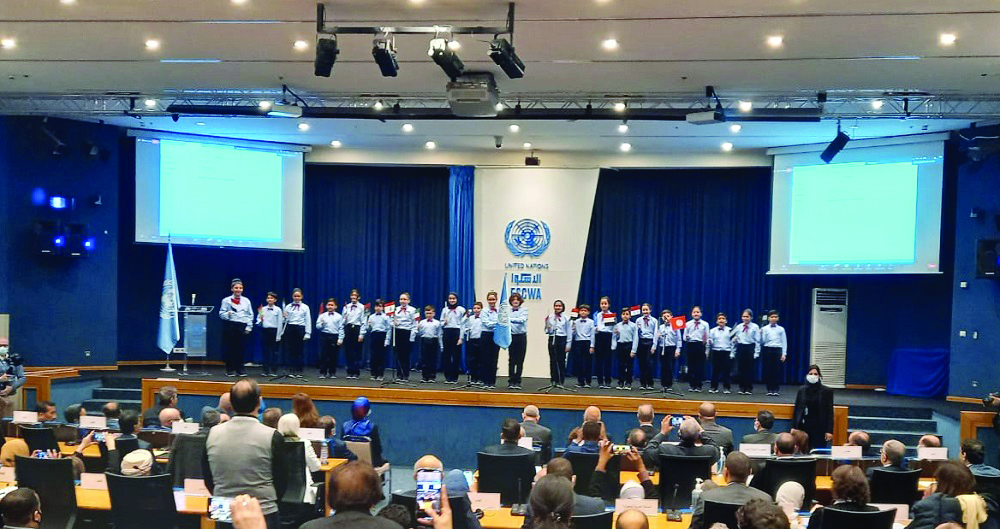BEIRUT: The United Nations Economic and Social Commission for Western Asia (ESCWA) yesterday launched the Arab Forum for Sustainable Development titled (Recovery and Resilience 2022) in the Lebanese Capital Beirut. During the opening session, Arab League Secretary General Ahmad Abul Geit said that the Arab Region has witnessed a significant increase in poverty levels during 2020 with 14 million people, raising the total number to 115 million people.
This number represents a quarter of the population of the Arab world, some Arab countries suffer from high rates of severe poverty, such as Somalia and Yemen, he noted. He added that the General Secretariat of the League has signed a cooperation memorandum with food banks that include 19 Arab states in membership, in order to strengthen efforts to eradicate hunger in the Arab region.
In this regard, Abul Geit referred to a resolution that was reached by the Council of the Arab League on the ministerial level, suggested by Kuwait, to prepare a comprehensive and integrative strategic study on the issue of Arab food security for submitting it to the next Arab summit in Algeria. The study might be presented also during the Fifth Economic and Social Development Summit that Mauritania will host early next year, he noted.
On her part, Deputy UN Secretary General Amina Mohammad said that war in Ukraine is destabilizing the global economy which is still suffering from the Corona pandemic, leading to a significant rise in the prices of food, fuel and other basic commodities. The Arab region has made great progress in addressing the Corona pandemic, as the vaccination rate in some countries has reached 90 percent, but there is inequality within the two region, as less than two percent of the people in Yemen are vaccinated, which increases the risks of new changes that do not threaten the region only, but the world, she noted.
She called for building stronger health systems through investing in the primary health care, health surveillance systems, local production of vaccines, diagnostics and treatment. She stressed that the UN will continue to work with national governments to develop long-term financing strategies to support the "2030 Agenda" through the use of integrated national financing frameworks.
In turn, Jordanian Minister of Planning and International Cooperation Nasser Al-Shraideh said, "the economic growth rates are still low as a result of the decline in the performance of the main sectors, especially the sectors of industry, tourism and transport."Rates of poverty and unemployment are still at critical rates, especially in the youth and women categories, in addition to the high public debt in relation to the national product in most of the Arab countries, he added.
He considered that the forum is a real and unique opportunity for countries and institutions concerned with sustainable development to identify priorities for action and ways to implement them to come up with recommendations that will be a reliable roadmap for sustainable development in the Arab countries.
For her part, the Under-Secretary-General of the United Nations and Executive Secretary of ESCWA, Rola Dashti (Kuwaiti) said, "There are an additional 16 million poor people due to the Corona pandemic. Unemployment among young people is the highest in the world, and the disparity in wealth is stark, as the richest 10 percent in the region own more than 80 percent of its wealth."She added that 5.66 million people need humanitarian assistance in Syria, Sudan, Somalia, Iraq, Palestine, Lebanon, Libya and Yemen.
She noted that the public debt has reached historical levels estimated at $4.1 trillion, in an area that needs an additional $462 billion to recover from the Corona pandemic. The work of the Arab Forum for Sustainable Development will continue in Beirut today and today. - KUNA











